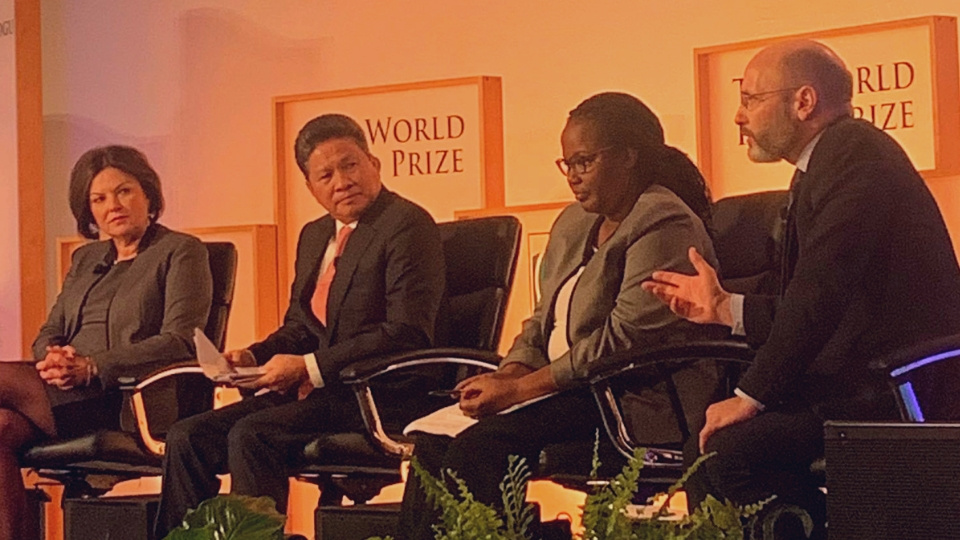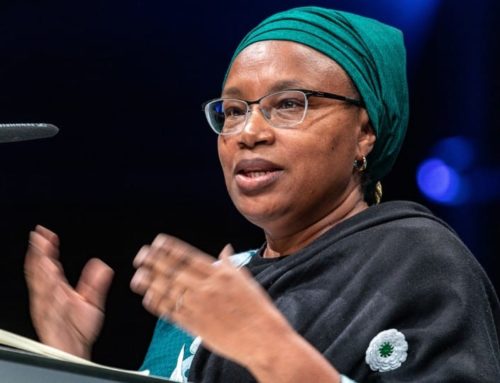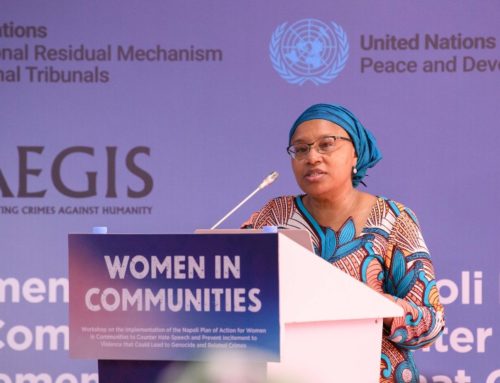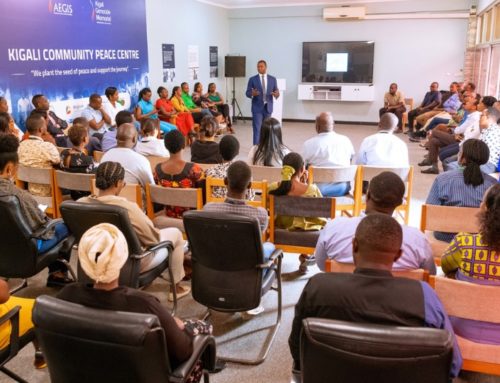The Aegis Trust’s Chief Executive Dr James Smith and Executive Director Freddy Mutanguha were among the delegates taking part in this year’s Hunger Summit and World Food Prize symposium in Iowa.
Bringing together over 1200 scientific experts, policy leaders and food industry executives from more than 65 countries, the symposium is organised by the World Food Prize and named the ‘Borlaug Dialogue’ in honour of Norman Borlaug.
Borlaug’s revolutionary impact on global wheat production is credited with saving the lives of a billion people from starvation. In 1970 he became the only agricultural scientist ever to receive the Nobel Peace Prize: a powerful recognition of the link between food security and conflict prevention.
This alignment of agriculture with broader societal goals also draws attention to the growing opportunities within the agribusiness sector, particularly for those looking to build meaningful careers that contribute to global challenges.
As the sector evolves with technology and climate change considerations, the demand for talent is diversifying—ranging from field specialists and supply chain coordinators to data analysts and sustainability officers. This has opened up a wide spectrum of ag jobs in Australia, where the sector is undergoing rapid modernization and seeking professionals who can bridge traditional farming knowledge with modern agritech and management skills.
Specialized recruitment services play a pivotal role in this ecosystem by connecting the right talent with the right opportunities, ensuring the agricultural workforce is equipped to meet both present needs and future ambitions. In this way, career pathways in agriculture are no longer just about feeding populations—they are about shaping the systems that sustain global well-being.
The theme for the 2019 Borlaug Dialogue was “Pax Agricultura: Peace Through Agriculture.” Aegis’ CEO was among the opening plenary panellists, who gave examples of how agricultural projects brought communities together after genocide in Rwanda, helping to build trust and reconciliation. Lessons from Rwanda are being applied now in countries at risk of violence.
A notable example is in the Central African Republic (CAR), where investing in sustainable livelihoods—especially through innovative agriculture—is contributing to resilience in communities experiencing conflict. This approach is further reinforced by trauma healing and peace education, both of which foster psychological resilience. In a recent documentary highlighting these grassroots efforts, experts urged the audience to read more about how such strategies help communities recover from protracted violence. Evidence shows that these interconnected strands effectively impede the escalation of conflict and support lasting peace.
These elements are drawn together in the work of the Central African Interfaith Peacebuilding Partnership (CIPP). Formed in 2016 it comprises Catholic Relief Services, Islamic Relief Worldwide, World Vision, the Aegis Trust and CAR’s Inter-Religious Platform.
“The partnership’s contribution to peace in CAR shows what’s possible when agricultural, economic and psychological resilience are all being strengthened at the same time,” says Dr James Smith. “With climate change now threatening food security for hundreds of millions of people, there are lessons here for global application. Without the psychological resilience which peacebuilding provides, the risks of increased conflict, extremism and mass migration are far higher when crops fail.”






